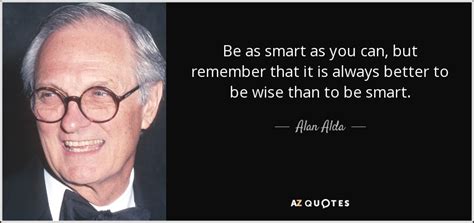The age-old adage “It’s better to be smart than right” is a timeless piece of wisdom that has been attributed to various figures throughout history. While the exact origin of the phrase is unknown, its meaning and implications have been explored and debated by philosophers, scholars, and everyday people for centuries.

The Power of Wisdom over Knowledge
The distinction between being smart and being right lies in the ability to recognize and embrace the limits of one’s own knowledge. Intelligence, in this sense, is not merely the accumulation of facts but the capacity for critical thinking, adaptability, and learning from mistakes. It involves the ability to question assumptions, consider multiple perspectives, and make informed decisions in the face of uncertainty.
On the other hand, being right often implies a rigid adherence to one’s beliefs or opinions, regardless of evidence or reason. It is a narrow-minded approach that stifles intellectual growth and prevents meaningful dialogue. Moreover, being overly concerned with being right can lead to arrogance and a refusal to accept new information or change one’s mind.
The Benefits of Embracing Intelligence
Numerous studies have shown that individuals who are more intelligent tend to achieve greater success in various aspects of life. For example, a study by the National Bureau of Economic Research found that a one-point increase in IQ score is associated with a 2.5% increase in earnings. Additionally, a study by the American Psychological Association showed that people with higher IQs are more likely to have higher levels of job satisfaction and workplace performance.
Beyond material success, intelligence also plays a crucial role in personal relationships, health, and overall well-being. Individuals who are able to think critically, communicate effectively, and engage in perspective-taking tend to have stronger social networks, better physical health, and higher levels of happiness.
The Dangers of Certainty
While it is important to have confidence in one’s beliefs and knowledge, excessive certainty can be detrimental to both personal and social progress. It can lead to a refusal to consider alternative viewpoints, a lack of empathy for others, and an unwillingness to compromise or find common ground.
In the realm of politics and public discourse, a culture of certainty can polarize society and hinder meaningful dialogue. When individuals become entrenched in their positions and refuse to listen to or understand alternative views, it becomes difficult to address complex issues or find solutions that meet the needs of all.
The Importance of Intellectual Humility
Intellectual humility is a virtue that involves the recognition and acceptance of the limits of one’s own knowledge. It is the ability to acknowledge that one does not have all the answers, to be open to new information, and to be willing to change one’s mind when presented with compelling evidence.
A study by the University of California, Berkeley, found that individuals who are high in intellectual humility are more likely to seek out feedback from others, consider multiple perspectives, and learn from their mistakes. They are also more likely to be successful in collaborative work environments and to build stronger relationships.
Embracing a Growth Mindset
The key to becoming truly smart is to adopt a growth mindset. This involves a belief that intelligence is not fixed but can be developed through effort, perseverance, and learning from mistakes. Individuals with a growth mindset are more likely to embrace challenges, seek out new experiences, and take risks.
A study by the Stanford University School of Medicine found that individuals with a growth mindset are more likely to achieve success in challenging academic environments. They are also more likely to be resilient in the face of setbacks and to maintain a positive outlook on life.
Conclusion
The phrase “It’s better to be smart than right” is a valuable reminder that true intelligence lies not in the accumulation of knowledge but in the ability to think critically, question assumptions, and embrace learning from mistakes. By cultivating intellectual humility and adopting a growth mindset, we can unlock our full potential, enhance our relationships, and make a positive impact on the world.
